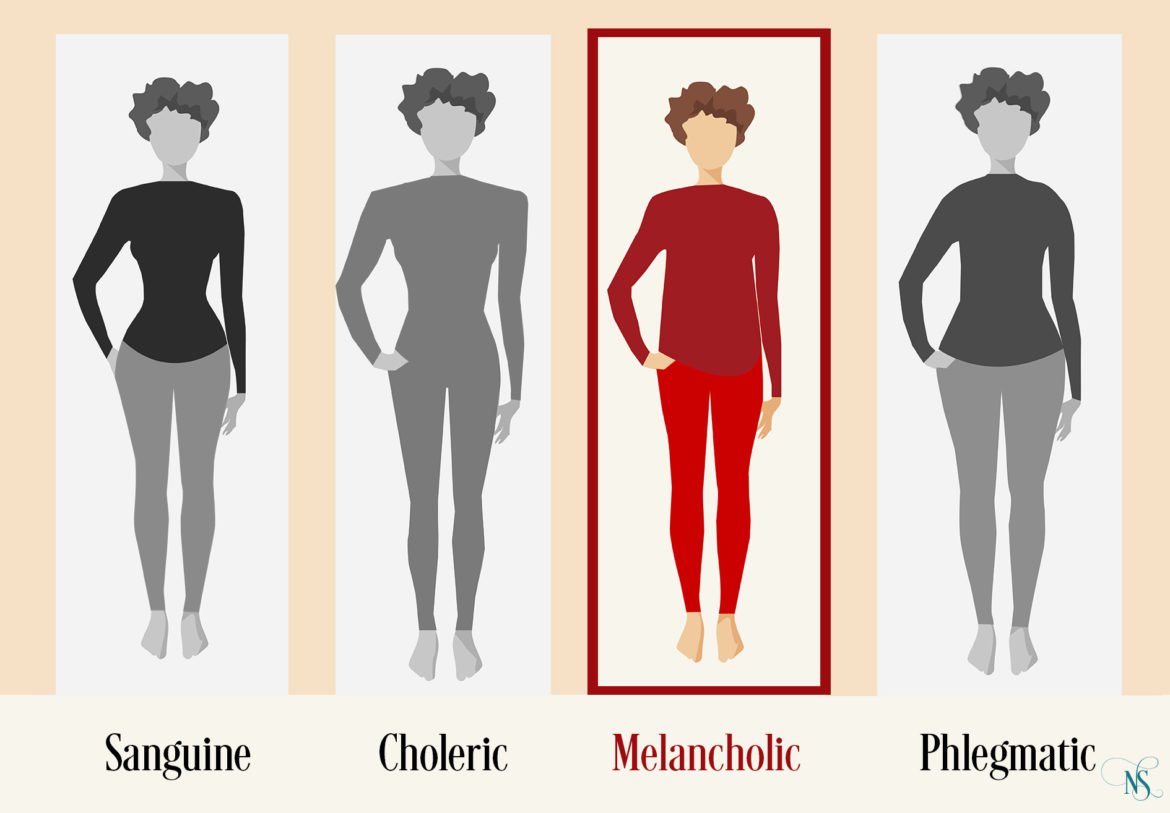The Four Body Types
In Greek Medicine, it is believed that there are four body temperaments that determine our constitution, and thus how we metabolize food. Although all four humors (or temperaments)—blood, yellow bile, black bile and phlegm—exist in all of us, in different quantities, there is usually one that is the dominating humor and which affects what we crave and how we respond to food. Whichever humor is dominant within a person reflects their body type. The four body types are:
Sanguine | Choleric | Phlegmatic | Melancholic
Melancholic Temperament (Black Bile – Sauda)
Melancholic is considered to be the most problematic because it is opposite to our natural balance, but with proper care it can be healthy.
Humor: Black Bile
Constitution: Cold and Dry
Traits:
- Rectangular face, prominent cheekbones
- Tends to be thin, lean
- Variable to poor appetite
- Slow, erratic metabolism, prone to dehydration
- Digestion varies according to mental/nervous/emotional state
- Constipation, irritable bowel is common
- Scanty sweat can be due to poor immunity
Predisposition: If out of balance, the following health concerns arise
- Anemia
- Poor appetite
- Nervous colicky digestive disorders
- Blood sugar problems
- Hypoglycemia
- Dizziness, vertigo, ringing in ears
- Depression
- Arthritis, rheumatism
Foods that aggravate: old, dry, stale foods, excessive beans, soy, nuts, astringent foods, peanuts, rancid fats and nightshade vegetables such as peppers, tomatoes, potatoes, and eggplants.
www.greekmedicine.net/b_p/Four_Temperaments
What does Islam say about body constitution?
There is no direct mention of body types/constitutions in the Qur’an or Sunnah, however the Prophet Muhammad ﷺ did eat foods together that had opposite energetics – which was accepted medicine of that time – as a method of balancing foods. Energetics does not refer directly to types of foods, but rather to their composition and their effect on the moisture, dryness, heat and coldness of the body. It is important to note that the doctor of the Prophet ﷺ was Al Harith Ibn Kalada. He was a companion and the oldest known Arab physician who was educated in and practiced Greek Medicine. (Body constitutions were part of their medical practice).
Reference: Sh. Omar Suleiman’s lecture on the Prophet’s Doctor

